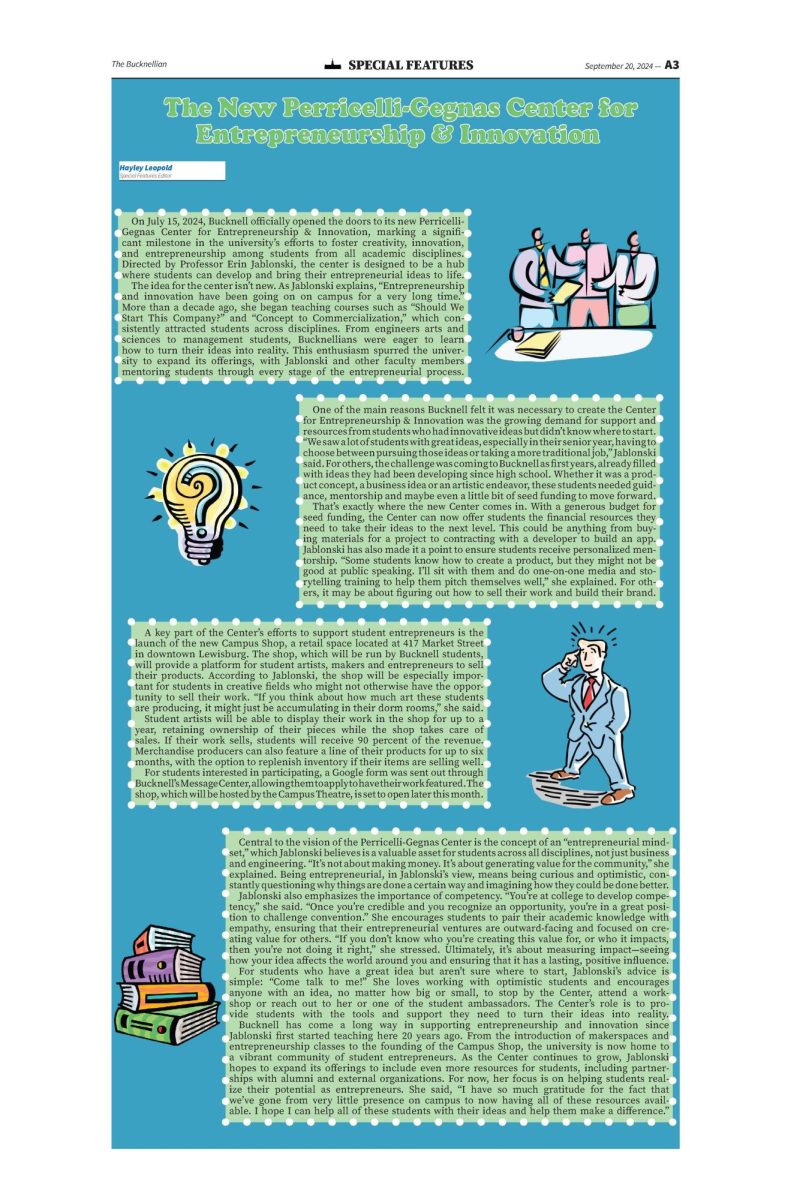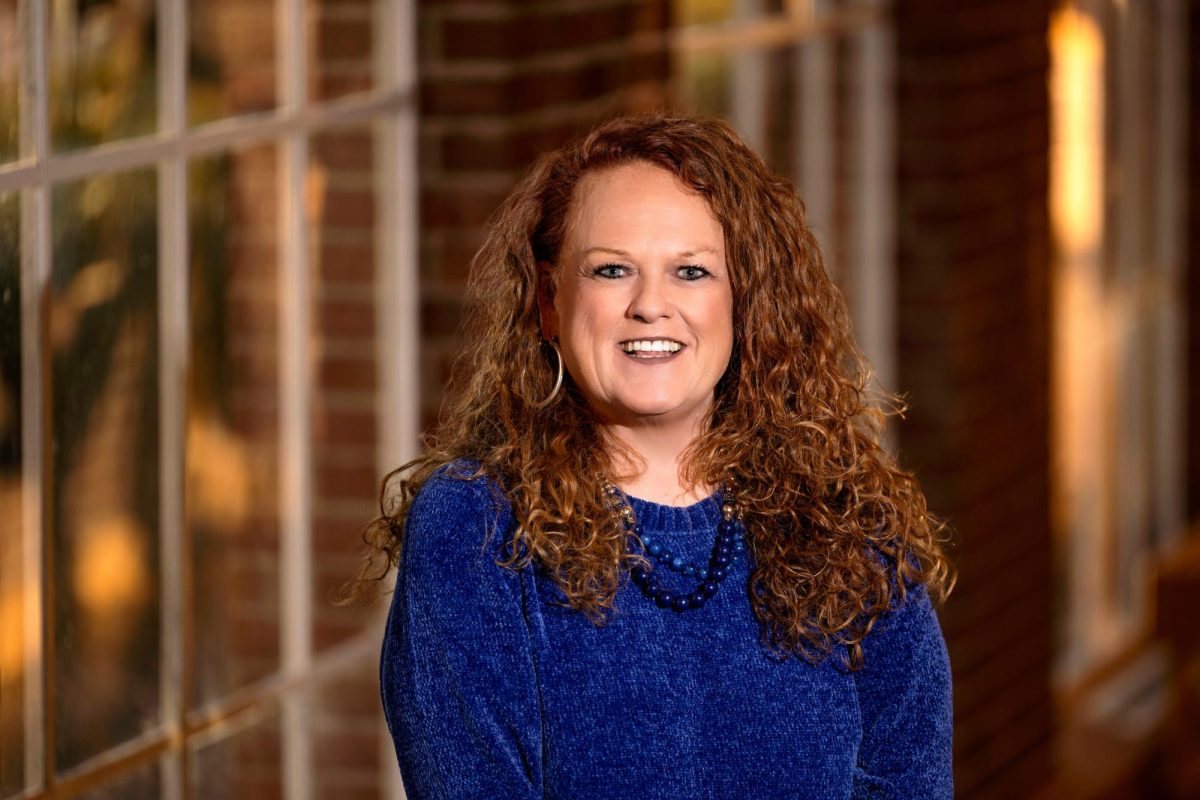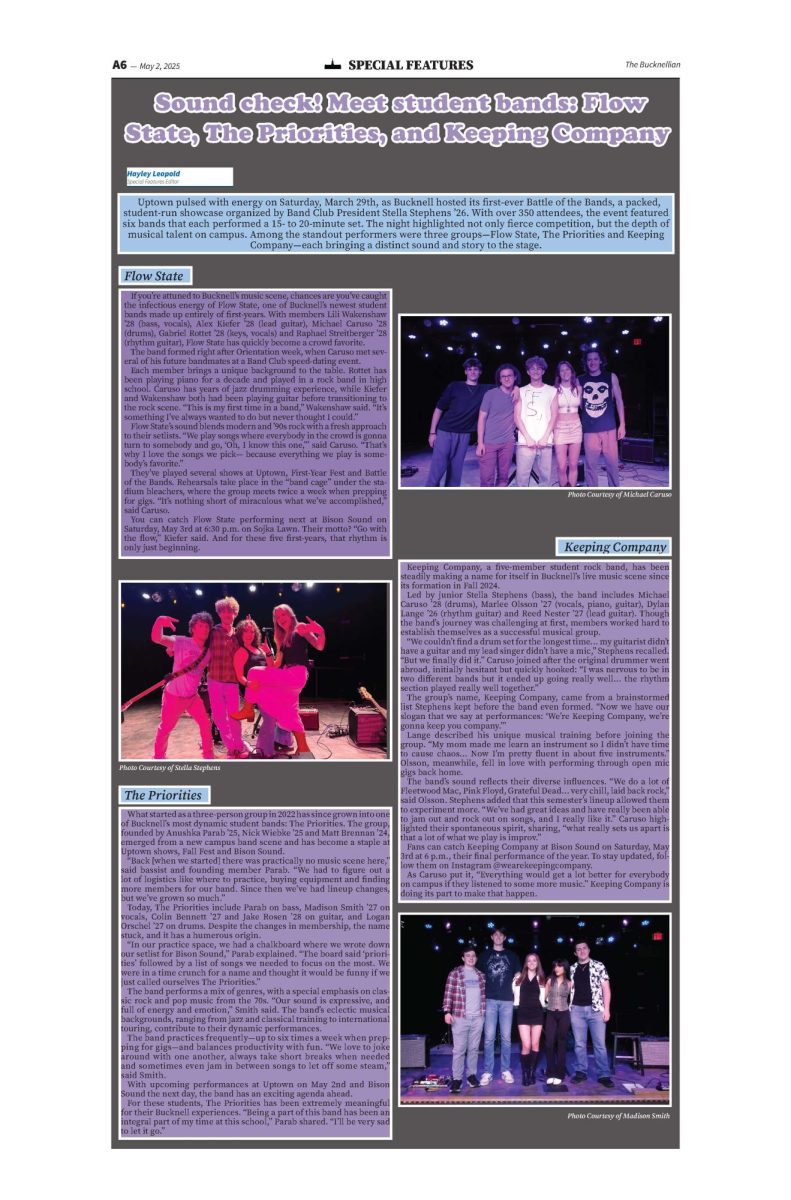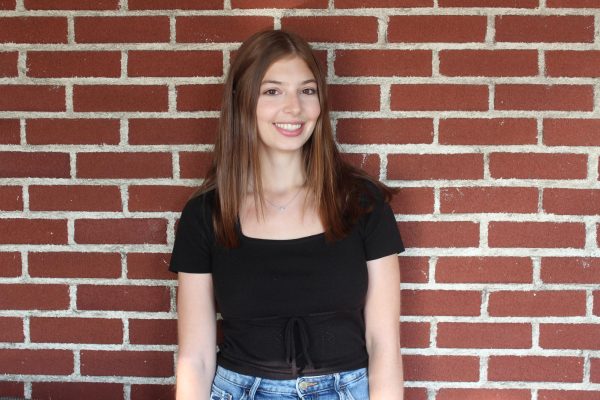On July 15, 2024, Bucknell officially opened the doors to its new Perricelli-Gegnas Center for Entrepreneurship & Innovation, marking a significant milestone in the university’s efforts to foster creativity, innovation and entrepreneurship among students from all academic disciplines. Directed by Professor Erin Jablonski, the Center is designed to be a hub where students can develop and bring their entrepreneurial ideas to life.
The idea for the Center is not new. As Jablonski explains, “Entrepreneurship and innovation have been going on on campus for a very long time.”
More than a decade ago, she began teaching courses such as “Should We Start This Company?” and “Concept to Commercialization,” which consistently attracted students across disciplines. From engineers to arts and sciences to management students, Bucknellians were eager to learn how to turn their ideas into reality. This enthusiasm spurred the university to expand its offerings, with Jablonski and other faculty members mentoring students through every stage of the entrepreneurial process.
One of the main reasons Bucknell felt it was necessary to create the Center for Entrepreneurship & Innovation was the growing demand for support and resources from students who had innovative ideas but didn’t know where to start. “We saw a lot of students with great ideas, especially in their senior year, having to choose between pursuing those ideas or taking a more traditional job,” Jablonski said. For others, the challenge was coming to Bucknell as first years, already filled with ideas they had been developing since high school. Whether it was a product concept, a business idea or an artistic endeavor, these students needed guidance, mentorship and maybe even a little bit of seed funding to move forward.
That’s exactly where the new Center comes in. With a generous budget for seed funding, the Center can now offer students the financial resources they need to take their ideas to the next level. This could be anything from buying materials for a project to contracting with a developer to build an app. Jablonski has also made it a point to ensure students receive personalized mentorship. “Some students know how to create a product, but they might not be good at public speaking. I’ll sit with them and do one-on-one media and storytelling training to help them pitch themselves well,” she explained. For others, it may be about figuring out how to sell their work and build their brand.
A key part of the Center’s efforts to support student entrepreneurs is the launch of the new Campus Shop, a retail space located at 417 Market Street in downtown Lewisburg. The shop, which will be run by Bucknell students, will provide a platform for student artists, makers and entrepreneurs to sell their products. According to Jablonski, the shop will be especially important for students in creative fields who might not otherwise have the opportunity to sell their work. “If you think about how much art these students are producing, it might just be accumulating in their dorm rooms,” she said.
Student artists will be able to display their work in the shop for up to a year, retaining ownership of their pieces while the shop takes care of sales. If their work sells, students will receive 90 percent of the revenue. Merchandise producers can also feature a line of their products for up to six months, with the option to replenish inventory if their items are selling well.
For students interested in participating, a Google form was sent out through Bucknell’s Message Center, allowing them to apply to have their work featured. The shop, which will be hosted by the Campus Theatre, is set to open later this month.
Central to the vision of the Perricelli-Gegnas Center is the concept of an “entrepreneurial mindset,” which Jablonski believes is a valuable asset for students across all disciplines, not just business and engineering. “It’s not about making money. It’s about generating value for the community,” she explained. Being entrepreneurial, in Jablonski’s view, means being curious and optimistic, constantly questioning why things are done a certain way and imagining how they could be done better.
Jablonski also emphasizes the importance of competency. “You’re at college to develop competency,” she said. “Once you’re credible and you recognize an opportunity, you’re in a great position to challenge convention.” She encourages students to pair their academic knowledge with empathy, ensuring that their entrepreneurial ventures are outward-facing and focused on creating value for others. “If you don’t know who you’re creating this value for, or who it impacts, then you’re not doing it right,” she stressed. Ultimately, it’s about measuring impact—seeing how your idea affects the world around you and ensuring that it has a lasting, positive influence.
For students who have a great idea but aren’t sure where to start, Jablonski’s advice is simple: “Come talk to me!” She loves working with optimistic students and encourages anyone with an idea, no matter how big or small, to stop by the Center, attend a workshop or reach out to her or one of the student ambassadors. The Center’s role is to provide students with the tools and support they need to turn their ideas into reality.
Bucknell has come a long way in supporting entrepreneurship and innovation since Jablonski first started teaching here 20 years ago. From the introduction of makerspaces and entrepreneurship classes to the founding of the Campus Shop, the university is now home to a vibrant community of student entrepreneurs. As the Center continues to grow, Jablonski hopes to expand its offerings to include even more resources for students, including partnerships with alumni and external organizations. For now, her focus is on helping students realize their potential as entrepreneurs. She said, “I have so much gratitude for the fact that we’ve gone from very little presence on campus to now having all of these resources available. I hope I can help all of these students with their ideas and help them make a difference.”






















